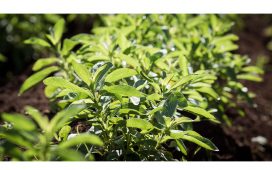
The European labeling proposal was part of the negotiations related to updating the European Union Common Agricultural Policy. The Committee on Agriculture and Rural Development, the committee considering the labeling proposal, said little about the vote other than, “MEPs (Members of the European Parliament) rejected all proposals to reserve meat-related names for products containing meat. Nothing will change for plant-based products and the names they currently use when being sold.”
The rationale for the European Parliament to take up the issue is understandable. Federal regulators seek consistent regulations throughout the EU rather than individual member states establishing their own labeling rules.
Sadly, animal-based meat and dairy groups as well as other groups in the US have turned to state-by-state legislative efforts to limit the verbiage meat- and dairy-alternative manufacturers may use on labels. The justification for the efforts is meat alternatives are causing confusion among consumers — that people cannot differentiate between an animal and a plant-based alternative. The makers of dairy and meat alternatives argue there is no confusion, the products are clearly labeled and such terms as “burger,” “milk” or “sausage” are simply descriptors.
Nevertheless, this past May, Oklahoma Governor Kevin Stitt signed the Oklahoma Meat Consumer Protection Act into law. The state law defines terms like “beef” and “pork” and states they may be used only to describe products from cattle or pigs. The law is being challenged.
A Louisiana state law that took effect Oct. 1 goes a step further. Not only does it restrict the labeling of meat alternatives from being called meat, but it also prevents non-rice products from being called rice and sugar alternatives from being marketed as sugar. The Good Food Institute and the Animal Legal Defense Fund filed a lawsuit Oct. 7 on behalf of Tofurky to challenge the law.
While preventing consumer confusion may be the justification for the passing of these laws, the reality is they are designed to slow the advancement of the plant-based trend, a trend that consumers and food manufacturers have embraced with gusto.
It is up to those supporting the labeling legislation to justify the use of resources to lobby for and get the legislation passed. But it is hoped they are putting even greater resources into innovating animal-based products to match the advancements being made in the dairy- and meat-alternative space.
Alternative manufacturers have been very open about their end goal; it’s not to just be equal to their animal-based counterparts in taste, price and scale — the goal is to be better. Animal-based product manufacturers will need to look beyond labels if they hope to be prepared for the innovation that is to come.






